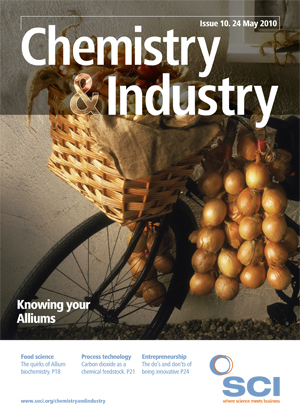Uncertainty is the only certainty for UK science after the general election on 6 May 2010, as researchers fret over where the axe might fall. The Conservative party gained the most seats in the House of Commons, but fell short of the overall majority of 326 MPs required to form a government. This has resulted in a power-sharing coalition with the Liberal Democrats, leaving scientists guessing as to which manifesto promises will be honoured and which will go as the real horsetrading begins.
Science’s voice in parliament has also been diminished by the loss of several high profile champions. The Liberal Democrats science spokesperson Evan Harris, one of the most vocal supporters of science and research and a former member of the science and technology select committee, was narrowly defeated in his constituency of Oxford West and Abingdon. In addition, the science select committee lost another committed backer of science as the Labour MP Phil Willis, and chair of the committee, stood down at the election. An analysis by UK newspaper The Times found that only 71 MPs in parliament have a science background, compared with 86 in the last parliament.
Prior to the election the Liberal Democrats and Conservatives both made encouraging noises about the importance of science to the economy, although Conservative science spokesperson Adam Afriyie was quoted as describing cuts to science as ‘inevitable’ (C&I 2010, 6, 5). The Liberal Democrats made a commitment to ring fence the science budget in their manifesto, but this was not matched by the Conservatives. This came on the back of several high profile reports, detailing the importance of science to the economy, from the Royal Society, the science and technology select committee and one, commissioned by the Conservatives, from the vacuum cleaner magnate James Dyson. The previous government had already told universities that they must cut £600m from their budgets.
As cabinet positions have been doled out in the coalition it has emerged that David Willetts, rather than Afriyie, will be the Minister of State for Universities and Science. Like the former science minister Paul Drayson, Willetts will attend Cabinet meetings, which was welcomed as a promising sign by the Campaign for Science and Engineering (CaSE). ‘Willetts is well placed to ensure that everyone in the Cabinet appreciates the importance of science and engineering and how they related to their departments,’ says Hilary Leevers, acting director of CaSE.
Meanwhile, Conservative MP Chris Huhne was appointed energy and climate change secretary. This was followed by calls for cutting bureaucracy and improving funding for green energy in the UK. ‘Britain is the poor man of Europe in terms of renewable energies and climate change. Legislation is stifling our clean tech industry, regulatory obstacles are contradicting themselves and government funding is almost impossible to achieve,’ says David Weaver, ceo of UK clean-tech company Ultra Green. ‘The government needs to form a commercially focused advisory board and not rely on misleading information.’





